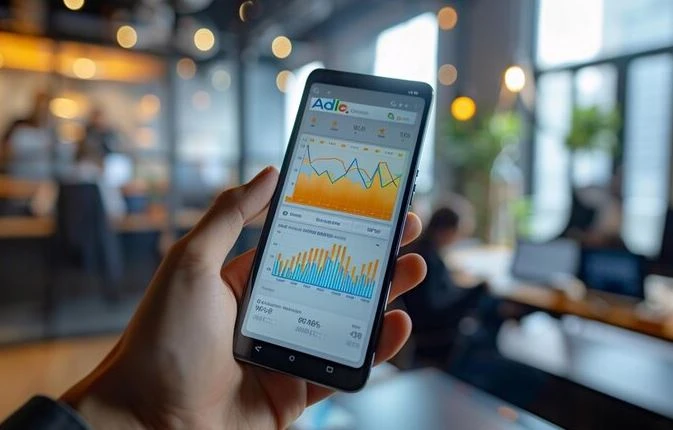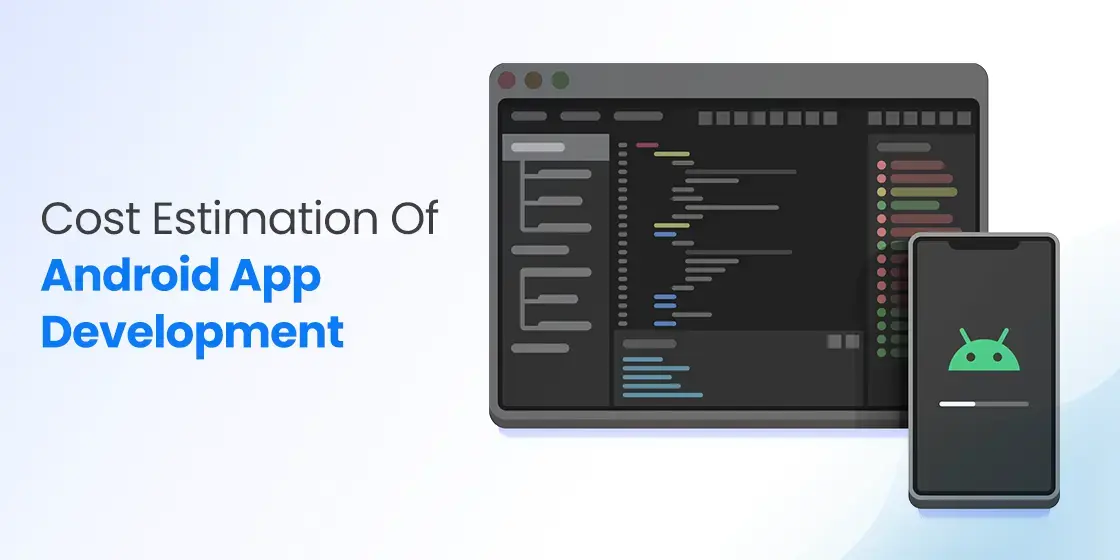Table of Content
Key Factors that Determine the Cost of Android App Development
Mobile apps are increasingly becoming important for businesses. They help companies to reach customers in a more convenient way, as everyone generally uses smartphone these days. The demand of Android app development is therefore picking up momentum rapidly. From startups to big businesses, everyone wants to know how much does Android app development cost exactly. You can get its initial quotation by consulting any professional app development company. There are plenty of them working in the industry, in which StruqtIO is often regarded as the best one to start with.
While going for Android app development, there are various factors you need to keep in mind at the first place. These factors are important because they decide the overall cost of Android app development. A lot of times, people even do not know about these things properly. That is the reason why they usually make mistakes while allotting budget for their projects. It is therefore best advised to first know all the constraints that are involved in your project, as that will allow you to allocate the budget properly.
In this blog, we will discuss how much does Android app development cost exactly. It will let you know all those factors that often scale up the Android project development cost. Let’s first start from the basics understanding why mobile apps are increasingly becoming important for businesses.
Importance of Mobile Apps for Businesses

Businesses are increasingly focusing on developing mobile apps due to the widespread adoption and usage of smartphones globally. With billions of smartphone users worldwide, mobile apps offer businesses a direct and convenient way to reach their target audience. Mobile apps provide a more personalized and engaging experience compared to traditional web browsing, allowing businesses to offer tailored content, notifications, and seamless interactions. This enhanced user experience leads to higher customer satisfaction and loyalty, which are crucial for business growth and retention.
Moreover, mobile apps enable businesses to gather valuable data and insights about their customers’ behaviors and preferences. This data can be leveraged to make informed decisions, optimize marketing strategies, and improve products or services. Mobile apps also support various monetization strategies, such as in-app purchases, subscriptions, and advertisements, providing additional revenue streams. The ability to offer exclusive deals, rewards, and loyalty programs through apps further incentivizes customers to engage with the business, driving sales and enhancing brand loyalty.
Finally, mobile apps contribute to a business’s competitiveness and market presence. In a digital-first world, having a robust mobile app is often seen as a sign of innovation and customer-centricity. Businesses that invest in mobile app development can better differentiate themselves from competitors, enhance their brand image, and meet the growing expectations of tech-savvy consumers. Additionally, mobile apps facilitate smoother communication and support, allowing businesses to address customer queries and issues more efficiently.
Determining the Cost by App Scale

The cost of an Android app depends largely on its complexity and scale. Those projects that fall in the category of small apps usually charge less, while projects with bigger scope comes with a hefty price. To understand this properly, take a look at the segregation below defined for multiple types of apps.
Small App Development Cost
These applications typically feature a fundamental set of functionalities designed to provide essential user experiences without extensive complexity. Core features often include user profile management, push notifications, straightforward navigation, a simple user interface, and limited content display. This streamlined approach ensures that the app serves its primary purpose effectively while maintaining ease of use. Due to the simplicity, the development process for such applications is relatively quick, usually taking about 2-3 months from start to finish.
Consequently, the cost of developing a small-scale app with these basic features generally falls within the range of $25,000 to $40,000. This price range covers the necessary development resources, including design, programming, testing, and initial deployment. By focusing on essential functions, businesses can achieve a functional and user-friendly app without a substantial financial investment. This makes it an attractive option for startups or businesses looking to enter the mobile app market with a limited budget.
Medium App Development Cost
Developing medium-sized applications presents a greater challenge due to their incorporation of more sophisticated functionalities. These apps are designed to handle a higher volume of content and provide more complex user interactions compared to simpler applications. Examples of such applications include social networking platforms, e-commerce solutions, fitness tracking tools, and online learning environments. Each of these app types requires a robust architecture to support user engagement & data management, making the development process more intricate and demanding.
The cost of developing medium-sized apps typically ranges from $50,000 to $80,000. This pricing reflects the need for advanced technical resources, including more extensive coding, detailed user interface design, comprehensive testing, and potentially ongoing maintenance and updates. The investment also covers the integration of multiple features such as secure payment gateways for e-commerce apps, social interaction functionalities for networking platforms, real-time data tracking for fitness apps, and interactive learning modules for educational applications.
Complex App Development Cost
Complex applications are distinguished by their responsive design, extensive navigation features, and numerous third-party integrations, reflecting a high level of complexity. These applications are built to handle intricate workflows, substantial amounts of data, and a seamless user experience across various devices. For example, when a healthcare organization transitions from a pre-packaged Electronic Health Record (EHR) or Electronic Medical Record (EMR) system to a custom-built solution, the development demands become significantly more intricate.
As a result, the costs associated with developing such complex applications are considerably higher, typically ranging from $100,000 to $125,000. This investment covers the extensive resources needed for detailed system architecture design. Additionally, it includes thorough development phases such as user interface design, backend development, quality assurance, and user acceptance testing. The higher price point also accounts for the necessity of continuous support and updates to maintain the application’s performance and adapt to evolving requirements.
Factors Affecting the Android App Development Cost

As defined above, there are various factors that affect the cost of Android app development. It is quite important to know all of them before hiring any outsource development team. If you do not know much about these factors, take a look at the list of constraints given below.
Project Complexity
One of the most critical factors in determining the cost of an Android app project is the overall complexity of the product. This consideration is typically addressed at the initial stage of the project to ensure a clear mutual understanding between the client and the development team. This phase, known as requirement analysis, involves a detailed examination of the project’s objectives and goals. By conducting this analysis, the development team can gain a comprehensive understanding of the app’s intended functionality, user interactions, and desired outcomes.
Requirement analysis provides the development team with an essential overview of the project, outlining how it should be executed and completed according to the specified functional requirements. This process includes defining the scope of work, identifying key features, determining user needs, and establishing technical specifications. By thoroughly analyzing these aspects, the development team can create a strategic plan that aligns with the client’s vision, ensuring that the project proceeds smoothly and efficiently.
Required Tech Stack
The choice of platforms utilized in mobile app development plays a significant role in determining the overall cost of the project. With a variety of coding languages and frameworks available, selecting the appropriate technology stack is crucial. This selection process is primarily guided by the project’s objectives and core requirements, ensuring that the chosen platforms align with the app’s functionality, performance expectations, and user experience goals. By carefully evaluating these factors, developers can identify the most suitable tools and technologies to meet the project’s demands effectively.
In some cases, clients may specify their preferred platforms at the outset of the development process. This early specification can be invaluable in fostering clear and effective communication between the client and the development team. When both parties have a mutual understanding of the required platforms from the beginning, it sets the stage for a more cohesive collaboration. This clarity helps in streamlining the development process, allowing for more accurate planning, resource allocation, and cost estimation.
Type of Application
Understanding that not all mobile apps are built using the same methodology is crucial for developers and stakeholders alike. Each mobile app project comes with its own set of unique requirements, goals, and challenges. These differences stem from various factors such as target audience, desired functionalities, and design preferences, all of which contribute to the uniqueness of each application. Additionally, the industry in which the app will operate significantly influences its development approach, as specific industries may demand particular features, compliance with regulations.
As a developer, acknowledging these variations is essential for accurately evaluating and setting project pricing in line with current standards. A thorough understanding of the project’s distinct needs allows for better resource allocation, timeline estimation, and cost management. It ensures that the final product meets the client’s expectations and industry requirements. Therefore, a tailored approach to each project not only enhances the quality and differentiation of the app but also aligns the development process with both technical and financial benchmarks.
Geographic Location
The geographic location of developers significantly influences the cost of a mobile app project. This phenomenon is evident in the market where prominent freelancers often charge premium rates for their services. These developers leverage their remote locations to set competitive development costs. However, the determining factor isn’t solely their location; their skills and experience play a crucial role. Clients don’t choose developers based solely on their country of residence. Instead, they conduct thorough assessments of the developers’ capabilities to accurately gauge the quality of their work.
In the process of selecting a developer, clients undertake detailed analyses of potential candidates’ expertise and past experiences. This evaluation goes beyond geographic considerations and focuses on ensuring that the selected developer possesses the necessary skills to deliver high-quality results. By rigorously vetting developers, clients can ascertain the true value of their work, which helps in making informed decisions. Thus, while geographic location plays a role, it is the comprehensive assessment of a developer’s skills that ultimately dictates the project’s financial requirements.
Project Deadline
It is important to remember that projects assigned with tight deadlines invariably come with higher price tags. Whether the project involves developing a website or an Android application, those with stringent deadlines are consistently valued at a premium. This premium pricing reflects the urgency and the increased resources required to meet the tight schedule. However, it does not imply that anyone in the industry, irrespective of their experience level, can bid for these high-value projects. The elevated pricing is reserved for those who can demonstrate the capability to deliver quality work precisely.
Typically, top IT companies in Dubai prefer to award these time-sensitive projects to well-established agencies known for their expertise in handling such demanding timelines. These renowned agencies have a proven track record of successfully managing and delivering projects under tight deadlines, making them the preferred choice. Their prior experience and demonstrated efficiency ensure that they can meet the high standards and rapid turnaround required by these projects. Consequently, the selection process for such projects emphasizes not just the ability to meet deadlines but also the assurance of maintaining quality.
StruqtIO: Best Agency that Offer Cost-Effective App Development
StruqtIO has established itself as a respected entity within the UAE’s technology sector, focusing on crafting cutting-edge mobile applications that cater precisely to your requirements. Our teams of experts boast deep expertise in cross-platform mobile app development, guaranteeing a flawless user experience for your online audienfce.
Beyond mobile app creation, our comprehensive service portfolio spans diverse development disciplines. This encompasses bespoke software development, innovative web design, robust database solutions, and seamless cloud integration. By harnessing these capabilities, we are committed to guiding your business seamlessly into the next phase of digital transformation, ensuring sustained growth and success.
Frequently Asked Questions
| Why mobile apps are becoming important for businesses? Mobile apps are increasingly vital for businesses due to their ability to enhance customer engagement. They provide convenient access to services, and facilitate personalized interactions, thereby boosting customer loyalty and operational efficiency. |
| Why mobile apps with critical features require bigger budget? Mobile apps with critical features require a bigger budget because they necessitate advanced development expertise, rigorous testing processes, and robust infrastructure to ensure reliability and optimal performance. |
| What is the cost of Android app development? The cost of Android app development depends on various factors such complexity, deadline and more others. Combining these, the average development cost of an Android app starts from $25,000. |
Final Words
That brings us to the end of this blog in which we have discussed how much does Android app development cost exactly. Being a project stakeholder, it is important for you to know all the constraints that could increase or decrease the cost of your project. Luckily, this blog has discussed plenty of them, so that you can understand which practices can bring a toll on your project.
Meanwhile, if you are looking for a company that offers cost-effective app development solutions, get in touch with us today. We will help you to develop advanced mobile app solutions, rightly as per the needed requirements.

Empower your digital journey with StruqtIO - Your dedicated partner for cutting-edge custom software development, innovation, and digital transformative solutions. Harness the power of technology to elevate your business and redefine your digital landscape today.


